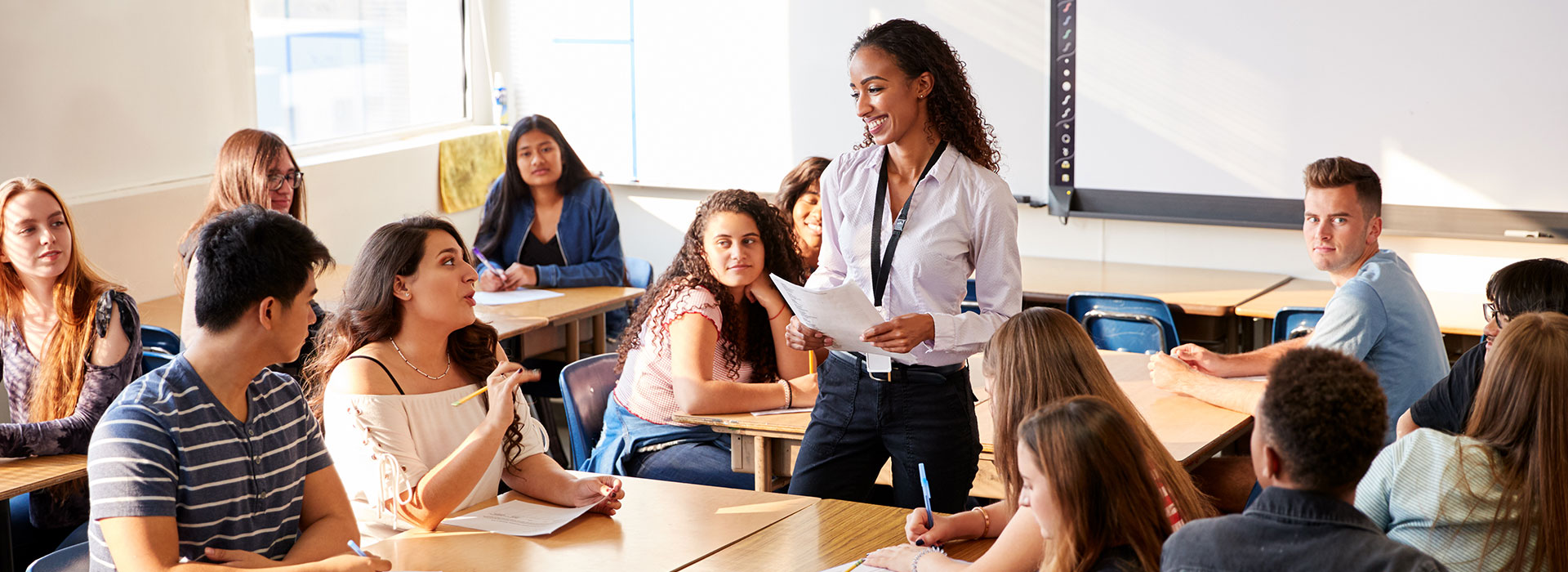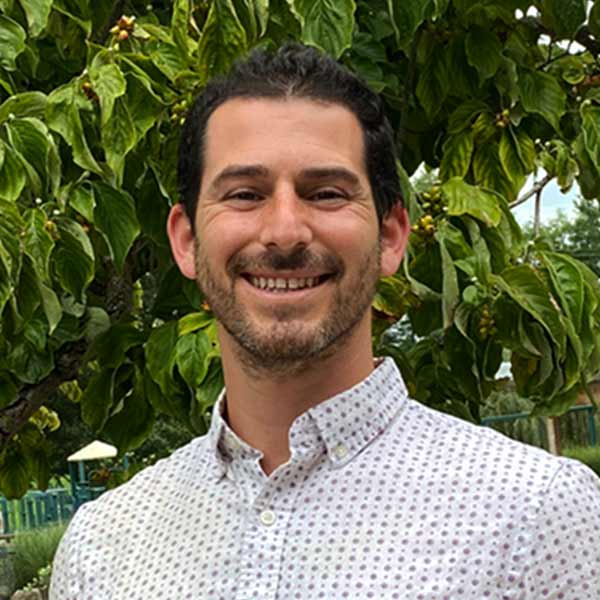Veteran teacher success in the shifting educational landscape
At 34-years-old, I’m fortunate to still have my grandma and great aunt. Though they are both nonagenarians, they haven’t lost their humor, optimism, and quick wit. In many respects, they remain just slightly shorter versions of who they always have been.
During my most recent trip to visit them, though, I began to notice some visible and stark differences between them. My great aunt had an iPhone, a bluetooth speaker in her backyard, and wireless internet in her home. On the other hand, my grandma had a flip phone, an AOL email address, and ethernet cable. They are about the same age, but one has adapting skills and has changed with the times, and the other simply prefers to remain encased in amber from the late-1990s — she remains an avid Beanie Baby collector.
I didn’t think much of these differences until we were driving to dinner one night. My grandma was calling for me to play an Elvis song. My great aunt wanted to hear an Ed Sheeran song. As they bickered with one another, a question popped into my head: why is it that some people have no problem adapting to change and others remain so set in their ways?
For years, one’s age has been the answer to this question. “You can’t teach an old dog new tricks” is a proverb that dates back to the sixteenth century, first appearing in John Heywood’s 1546 proverb collection. The thing is, age isn’t the determining factor in one staying current with the Billboard Hot 100. This same logic holds true when we apply it to education.

A Changing Education Paradigm
Over the past three school years, in the changing education paradigm, we have been forced to update our teaching practices. For some of us, this has been easier than others. Interestingly, the ease of these breakneck pivots — many of which were predicated on some measure of digital literacy — did not correspond to the age of the teacher. In fact, many teachers with more than 15 years in the profession have thrived, embracing change, adapting learning, and leading the way in their schools.
The impact of COVID-19 on the shape and grammar of these past few school years triggered a spike in retirements and resignations, with a report from the Rand Corporation finding that the “pandemic exacerbated attrition, burnout and stress on teachers, who were almost twice as likely as other employed adults to feel frequent job-related stress and almost three times more likely to experience depression.”
And yet, many veteran teachers opted to stay. In fact, many did more than just stay. Adapting curriculums, they updated their toolkits, reimagined learning, and supported students like never before, busting free from their routines in the name of figuring out what works.
I conducted a recent survey of 22 teachers who have an average of 21.2 years of classroom experience, to find out what skills, competencies, and dispositions have allowed veteran teachers to thrive in the shifting educational landscape, and to ask what advice they might give novice teachers to meet those challenges.
How Adapting Skills Benefitted Veteran Teachers
Survey participants represented a cross section of disciplines, demography, and geography. Every division of education was accounted for, from Preschool through High School, and adjunct professors. At the secondary level, all major disciplines were accounted for, including the humanities, STEM, fine arts, performing arts, and physical education. 36% of participants were People of Color (PoC) or ethno-religious minorities, with all participants identifying as U.S. citizens, teaching in one of six states: New York, Connecticut, California, Kentucky, Florida, and Kansas.
Question #1: Please share what professional or personal characteristics you possess that have allowed you to find success in adjusting to the constant change inherent to the times.
Teaching has never been a static profession. It is dynamic and ever-changing. Gerhard Fischer, Director of the Center for LifeLong Learning and Design (L3D) wrote, “Lifelong learning is an essential challenge for inventing the future of our societies; it is a necessity rather than a luxury to be considered…It is a mindset and a habit for teachers to acquire.”
Each year, teachers have new students, adapting learning techniques and updating their practices to meet the unique needs of the learners in front of them. The best teachers, therefore, are lifelong learners, continuously engaged in a cycle of experimentation and iteration.
This sentiment is one that all survey participants spoke to, with phrases such as “a desire to be an effective teacher,” “love of problem-solving,” and “finding what works in another crisis” speaking directly to the importance of this mindset. As one participant wrote, “We have to embrace a mindset of change, knowing that we will not always have the answers, but being willing to listen to others and ask for help from those who do.”
Question #2: Please share what skills you possess that have allowed you to find success in adjusting to the constant change inherent to the times.
Vulnerability is vital to our connecting with others and connecting with ourselves, because it allows us to eschew playing it safe in favor of being daring and bold. At the end of the day, being a continuous learner is predicated on our ability to admit that sometimes we don’t know and being vulnerable enough with ourselves and others to seek out those answers.
As Brene Brown writes, “Vulnerability is the birthplace of innovation.” Interestingly, survey participants uniformly agreed that being a lifelong learner isn’t a matter of upskilling, but about possessing the mindset and vulnerability to do just that, and adapting learning techniques for ourselves. As one participant wrote, “There are enough how-to videos you can find with a simple Google search to develop new skills. It is just about being willing to learn and making yourself vulnerable in doing so.” When times are as uncertain as they are at present, we need to tap into the expertise of those around us, exploiting what is working for them. At the same time, our willingness to tap into our PLN and ask for help is only going to occur when we are willing to be vulnerable.
Question #3: Please share what you think separates veteran teachers who have found success over the past three school years with those who have struggled.
Mistake-making is an unavoidable and critical component of being a continuous learner. When engaged in the learning process, the issue is not whether mistakes will be made, but whether mistakes can enable future learning to occur, and how skillful we are at adapting changes based on our mistakes. In other words, the question is whether we can make mistakes worthwhile.
As one participant shared, “To figure out what works, I had to be willing to fail. I had to try things that were new and have the confidence to not be afraid to look bad.” Of course, this is easier said than done, especially at a time when we are under such scrutiny, with parents/guardians lurking just off their child’s screen. This is likely why so many survey participants explicitly identified the growth mindset as being the backbone for this confidence to try, fail, reflect, and grow.
“I suspect that the biggest determinant to success in most instances and particularly as it relates to this question is whether or not the teacher has a growth mindset in regard to their own practice. It is easy to talk the talk about student achievement, but I believe that mindset is a deal breaker when it comes to creating or finding personal and professional success amidst change. Some teachers get stuck on doing what they’ve always done because it has worked for them, but resistance to change can be detrimental. I’m not suggesting that anyone make big changes without evaluating inherent costs or risks, but neither should they remain close-minded to the potential benefits.”
Question #4: Please share what you think separates veteran teachers who have found success over the past three school years with novice teachers who did not.
When touring prospective parents around the Middle School, I always share that we want students to have made 10,000 independent choices by the time they move into the High School. No matter the fluctuating quality of those 10,000 choices, the practice and experience of making that many choices means that their 10,001st choice — their first of High School — will have a reasonable likelihood of being better than if it was their first choice ever.
The veteran teachers who participated in this survey similarly felt that what distinguishes them from novice teachers is their experience. “Veteran teachers are accustomed to change. When you’re a novice teacher, changes come as a shock. Veteran teachers have experienced enough change and developed adapting skills to know how to navigate it and find creative solutions…
Veterans have a willingness to fail to try something new (the confidence to not be afraid to ‘look bad’). Because novice teachers don’t have old methods, they don’t quite understand the bridge from old to new and are less likely to problem-solve in that way. For example, regarding teaching phonics with masks on, a veteran teacher understands the pitfalls and can think more creatively in solving the problem.”
Question #5: What advice would you give to novice teachers who might be struggling?
- Take a deep breath. This is not over.
- It was just as bad as you thought it would be. Worse, in fact. You know what? You’re still killing it.
- Stick to your ideals and what you know to be right for students.
- We need to quit wishing for it to be easier and start working on making ourselves better.
In reflecting on these past three school years, veteran teachers pointed to their strong desire to learn, take risks, and tap into their PLN to figure out what works in this changing educational landscape, undeterred by the prospect of mistake-making and buoyed by the sort of confidence that only comes from being vulnerable. When I think of the kinds of teachers that I want serving students in my Middle School, those who are confident and vulnerable risk-takers, constantly in search of better practices is precisely what I am looking for. Far from being set in their ways, these veteran teachers are leaders in the field, and have set the blueprint for novice teachers to follow.
If you’re a school leader who is reading this, ask yourself, “What are you doing to tap into the expertise of the veteran teachers in your building to mentor and guide everyone else through these uncertain times?”
Learn More!

